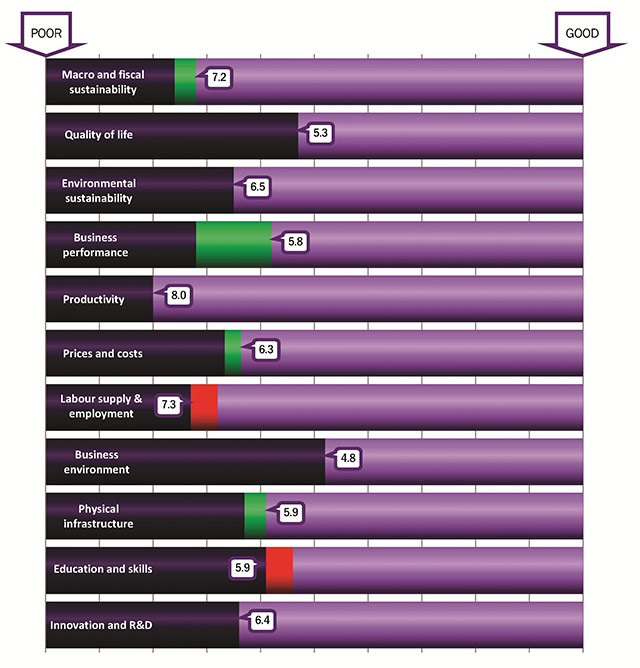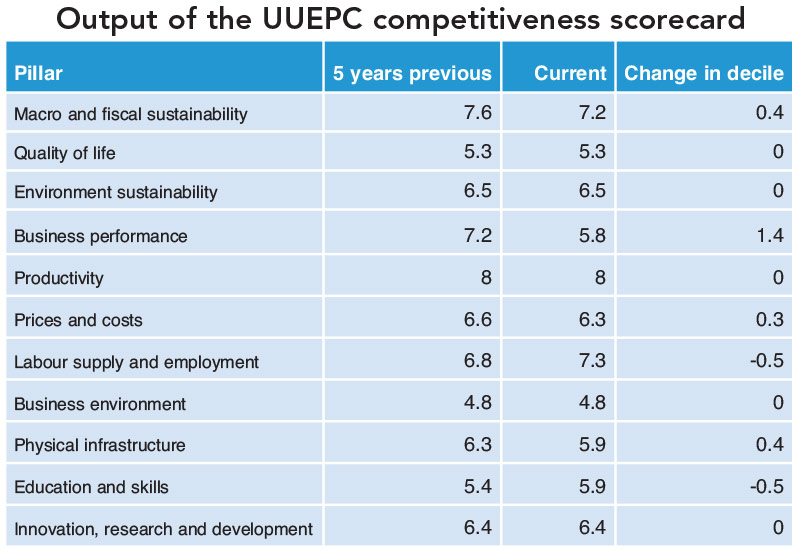Performance at a glance
Northern Ireland’s competitive ranking is “simply too low” and quicker improvement by the economies of other countries has led to our comparative position worsening, according to Northern Ireland’s first Competiveness Report.


As economic activity in Northern Ireland remains 7.8 per cent below its pre-downturn peak, action must be taken to ensure that the economy can progress over the coming years, especially in key areas such as labour supply and employment and education and skills, where a deterioration has been recognised, the Economic Advisory Group have said. Established by First Minister Arlene Foster back in 2010 during her time as Minister of Enterprise, Trade and Investment, the independent group of experts, have produced the first Northern Ireland Competitiveness report, a comprehensive assessment of Northern Ireland’s competitiveness through more than 150 indicators, across a five-year period.
The report found that a greater reliance on the public sector and public expenditure are linked to high levels of economic inactivity and benefit dependency, when compared to other countries in the Organisation for Economic Co-operation and Development (OECD). While positive business performance has been driven by strong Foreign Direct Investment (FDI), and economic sustainability and quality of life are on a positive trajectory, weak performance on productivity, employment and labour, as well as macro and fiscal sustainability have worsened the comparative performance.
Overall, Northern Ireland’s economy has made little progression over the last five years. The report suggests that a focus must now be shifted from immediate post-downturn strategy of job creation to longer-term issues around competitiveness. “Relative deterioration” in the labour supply and education and skills sector, as well as a low level of productivity are holding back the competitiveness of the economy, important to create higher levels of growth.





